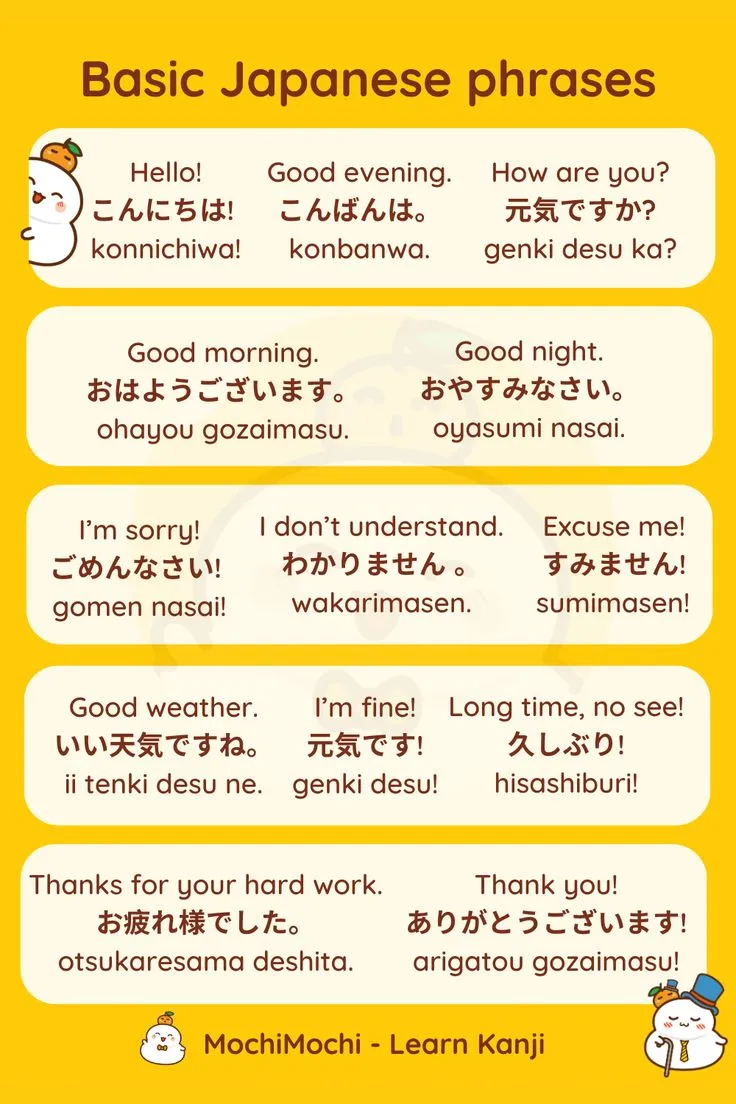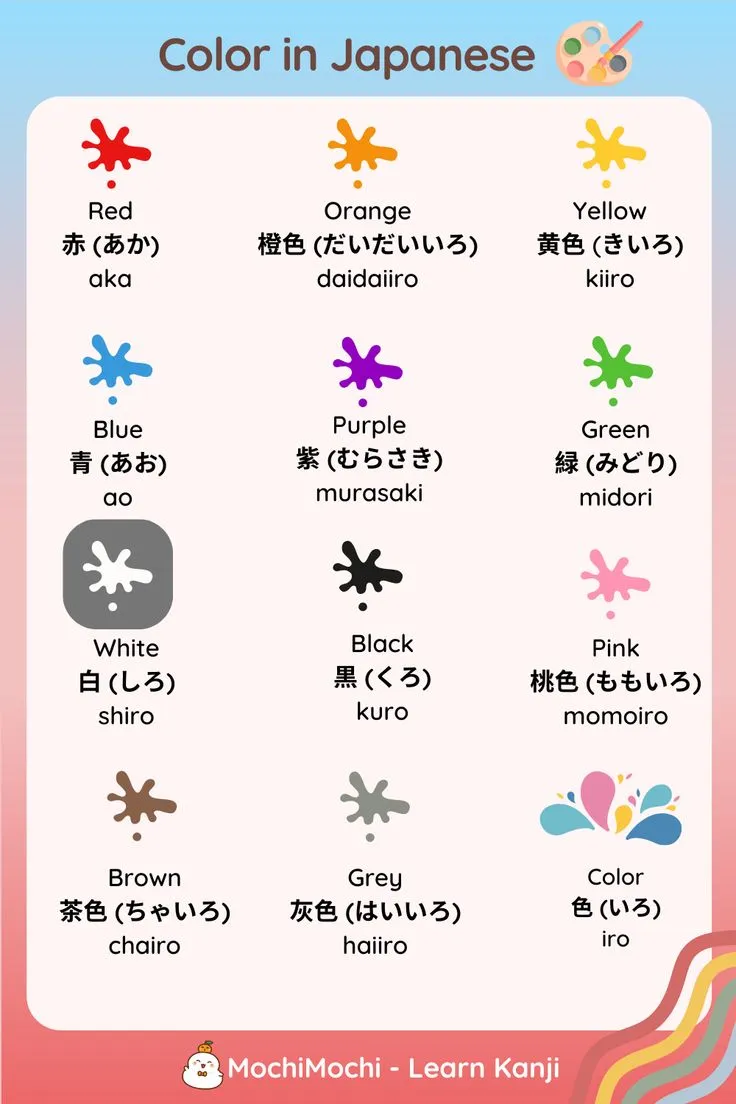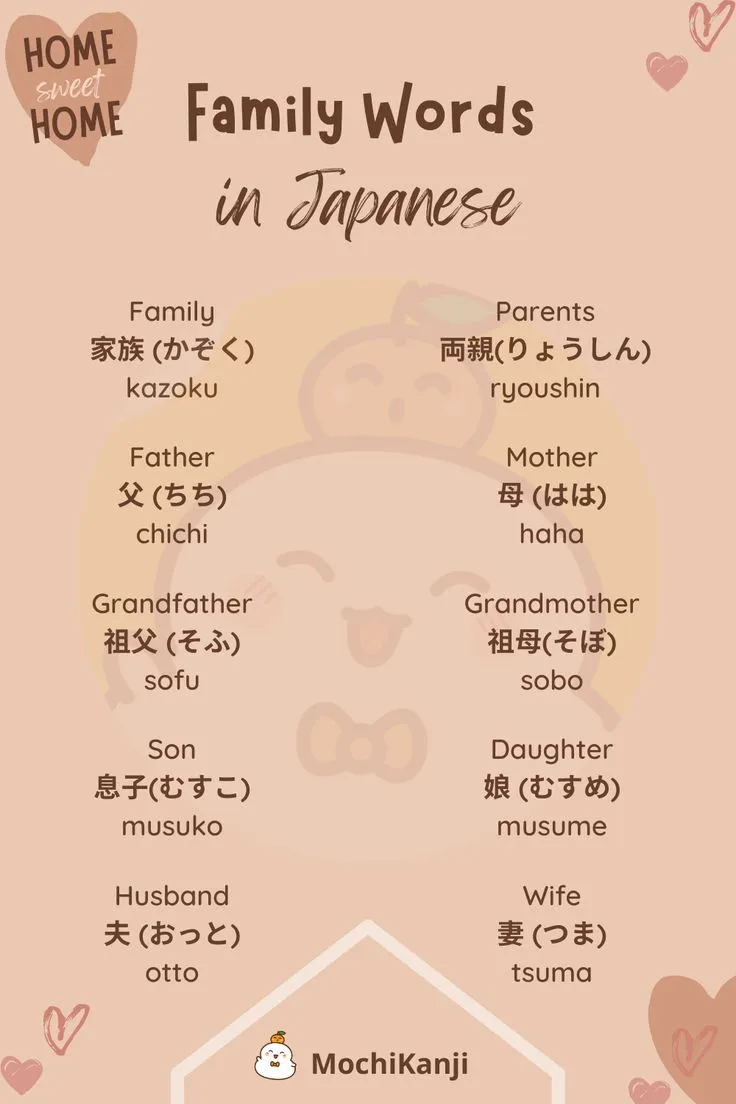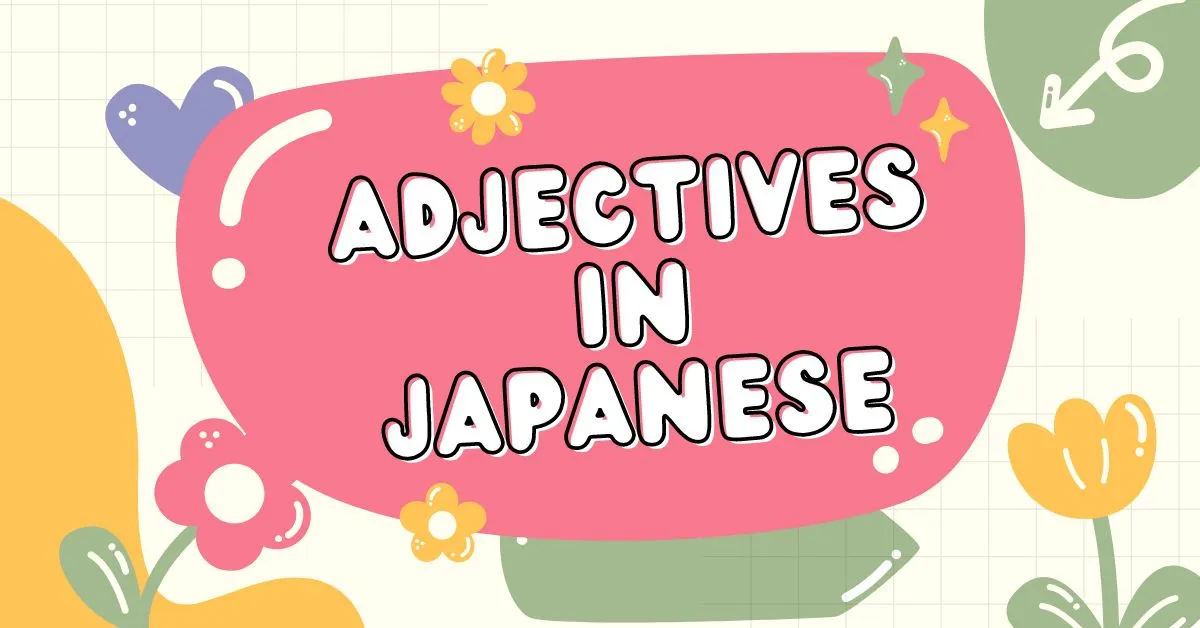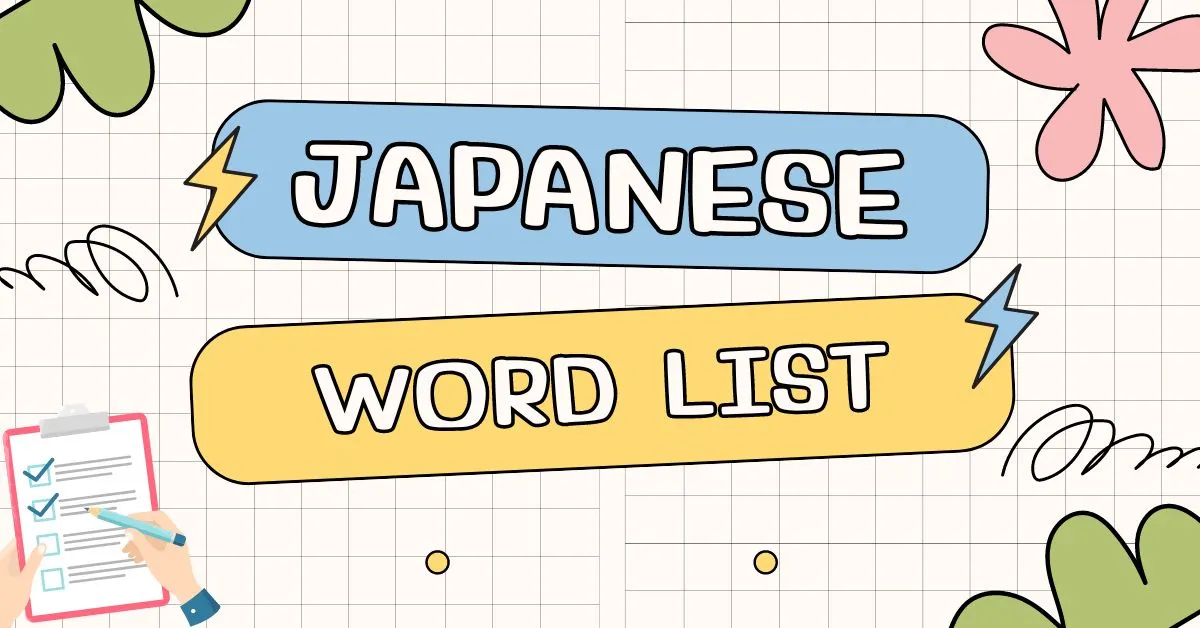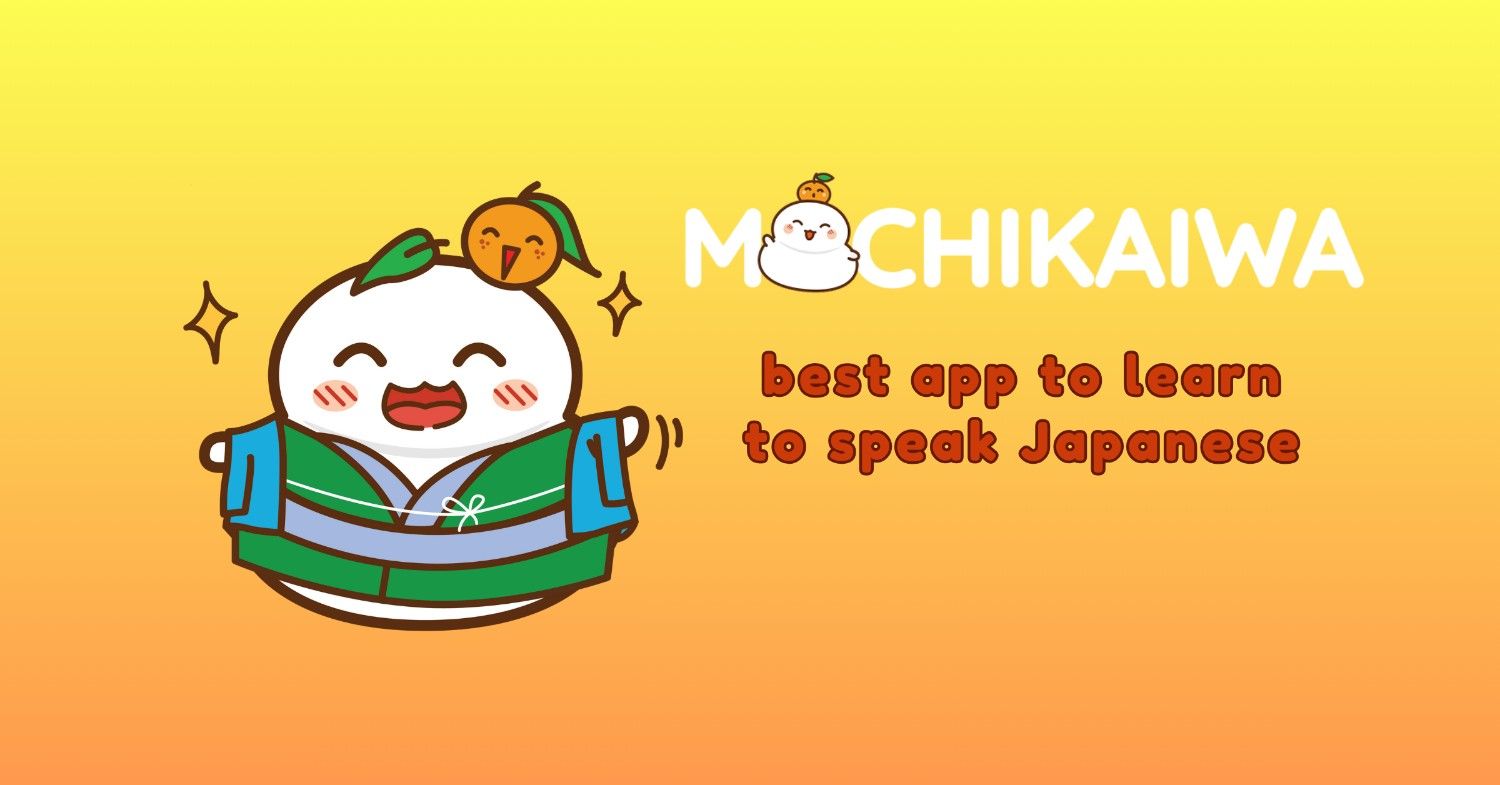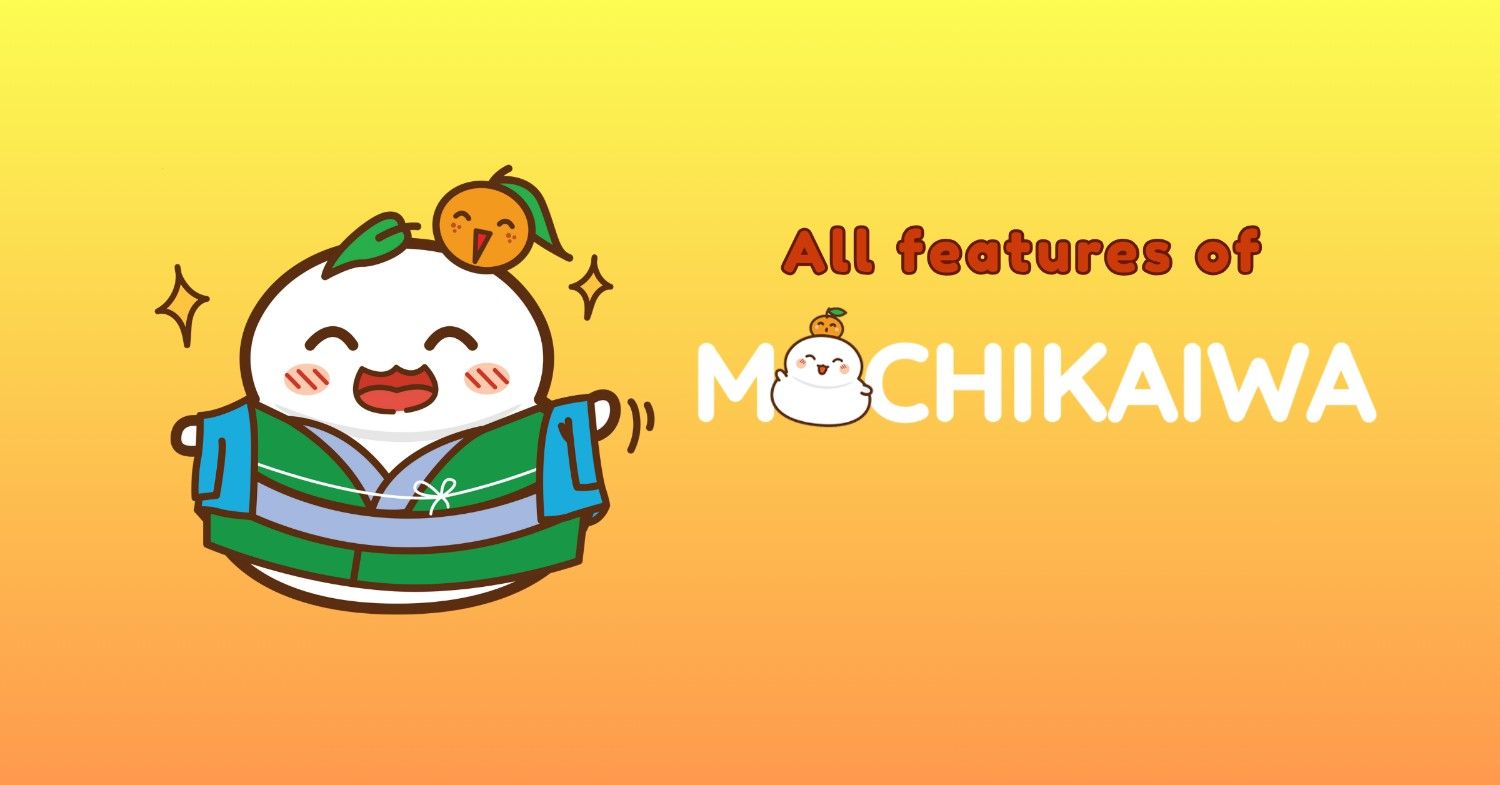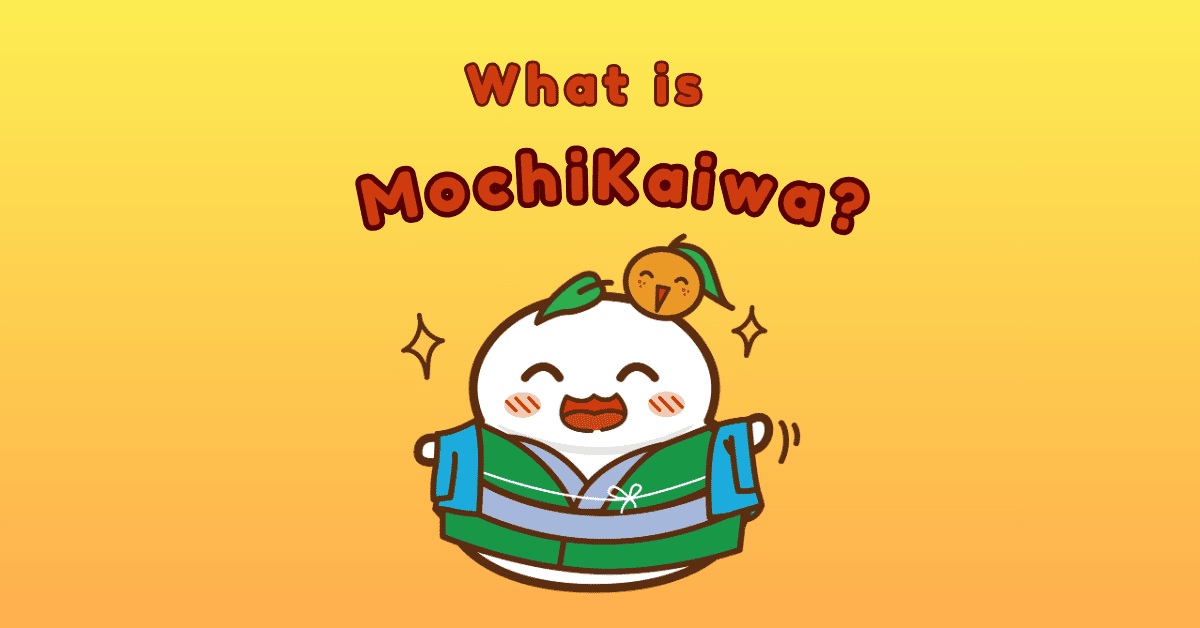Learning a new language can be both exciting and challenging, and mastering basic words is a crucial first step in your journey. In Japanese, a rich vocabulary opens up opportunities for meaningful conversations and cultural understanding. This guide focuses on essential basic words that will help you build a solid foundation in Japanese. Whether you’re just starting or looking to refresh your skills, these words will enhance your ability to communicate confidently in everyday situations.
- Greetings and common phrases
- Essential travel words
- Basic words for everyday objects
- Numbers
- Colors
- Food and drink
- Family and people
- Conclusion

Greetings and common phrases
| Japanese | Romaji | Meaning |
|---|---|---|
| こんにちは | Konnichiwa | Hello / Good afternoon |
| こんばんは | Konbanwa | Good evening |
| おはようございます | Ohayou gozaimasu | Good morning |
| おやすみなさい | Oyasumi nasai | Good night |
| ありがとうございます | Arigatou gozaimasu | Thank you |
| すみません | Sumimasen | Excuse me / I’m sorry |
| お願いします | Onegaishimasu | Please |
| どういたしまして | Dou itashimashite | You’re welcome |
| はい | Hai | Yes |
| いいえ | Iie | No |
These are the most basic and common Japanese phrases for greetings. Mastering these phrases will help you confidently greet others, make a good first impression, and start conversations smoothly. You can learn more common greeting phrases in MochiKanji’s conversation course.
Essential travel words
| Meaning | Japanese | Romaji | Example & translation |
|---|---|---|---|
| Where is…?: | ~はどこですか? | ~ wa doko desu ka? | トイレはどこですか? (Toire wa doko desu ka?) – Where is the restroom? |
| How much is this?: | これはいくらですか? | Kore wa ikura desu ka? | このリンゴはいくらですか? (Kono ringo wa, ikura desu ka?) – How much is this apple? |
| Help!: | 助けて! | Tasukete! | 助けて!迷子になりました。 (Tasukete! Maigo ni narimashita.) – Help! I’m lost. |
| I don’t understand: | わかりません | Wakarimasen | わかりません、英語が話せますか? (Wakarimasen, eigo ga hanasemasu ka?) – I don’t understand, do you speak English? |
Basic words for everyday objects
| Japanese | Romaji | Meaning |
|---|---|---|
| ペン | Pen | Pen |
| 本 | Hon | Book |
| 椅子 | Isu | Chair |
| テーブル | Teeburu | Table |
| 時計 | Tokei | Clock / Watch |
| 電話 | Denwa | Telephone |
| 窓 | Mado | Window |
| ドア | Doa | Door |
| ソファ | Sofa | Sofa |
| 電気 | Denki | Light |
| 冷蔵庫 | Reizouko | Refrigerator |
| 洗濯機 | Sentakuki | Washing Machine |
| 掃除機 | Soujiki | Vacuum Cleaner |
| カーテン | Kaaten | Curtain |
| 鏡 | Kagami | Mirror |
Japanese Numbers
| Japanese | Romaji | Meaning |
|---|---|---|
| 一 | ichi | 1 |
| 二 | ni | 2 |
| 三 | san | 3 |
| 四 | shi/yon | 4 |
| 五 | go | 5 |
| 六 | roku | 6 |
| 七 | shichi/nana | 7 |
| 八 | hachi | 8 |
| 九 | kyuu/ku | 9 |
| 十 | juu | 10 |
| 二十 | nijuu | 20 |
| 三十 | sanjuu | 30 |
| 四十 | yonjuu | 40 |
| 五十 | gojuu | 50 |
| 六十 | rokujuu | 60 |
| 七十 | nanajuu | 70 |
| 八十 | hachijuu | 80 |
| 九十 | kyuujuu | 90 |
| 百 | hyaku | 100 |
Are you ready to master counting in Japanese? Click here to explore our comprehensive lesson on numbers at MochiKanji:
Colors in Japanese
| Japanese | Romaji | Meaning |
|---|---|---|
| 赤 | aka | Red |
| 青 | ao | Blue |
| 黄色 | kiiro | Yellow |
| 緑 | midori | Green |
| 黒 | kuro | Black |
| 白 | shiro | White |
| 紫 | murasaki | Purple |
| オレンジ | orenji | Orange |
| 茶色 | chairo | Brown |
| 灰色 | haiiro | Gray |
| ピンク | pinku | Pink |
| 金色 | kiniro | Gold |
Food and drink
| Japanese | Romaji | Meaning |
|---|---|---|
| ご飯 (ごはん) | Gohan | Meal |
| パン | Pan | Bread |
| 水 (みず) | Mizu | Water |
| お茶 (おちゃ) | Ocha | Tea |
| 牛乳 (ぎゅうにゅう) | Gyuunyuu | Milk |
| りんご | Ringo | Apple |
| 肉 (にく) | Niku | Meat |
| 魚 (さかな) | Sakana | Fish |
| 野菜 (やさい) | Yasai | Vegetable |
| 果物 (くだもの) | Kudamono | Fruit |
| アイスクリーム | Aisukuriimu | Ice cream |
| 寿司 (すし) | Sushi | Sushi |
| ケーキ | Keeki | Cake |
| ビール | Biiru | Beer |
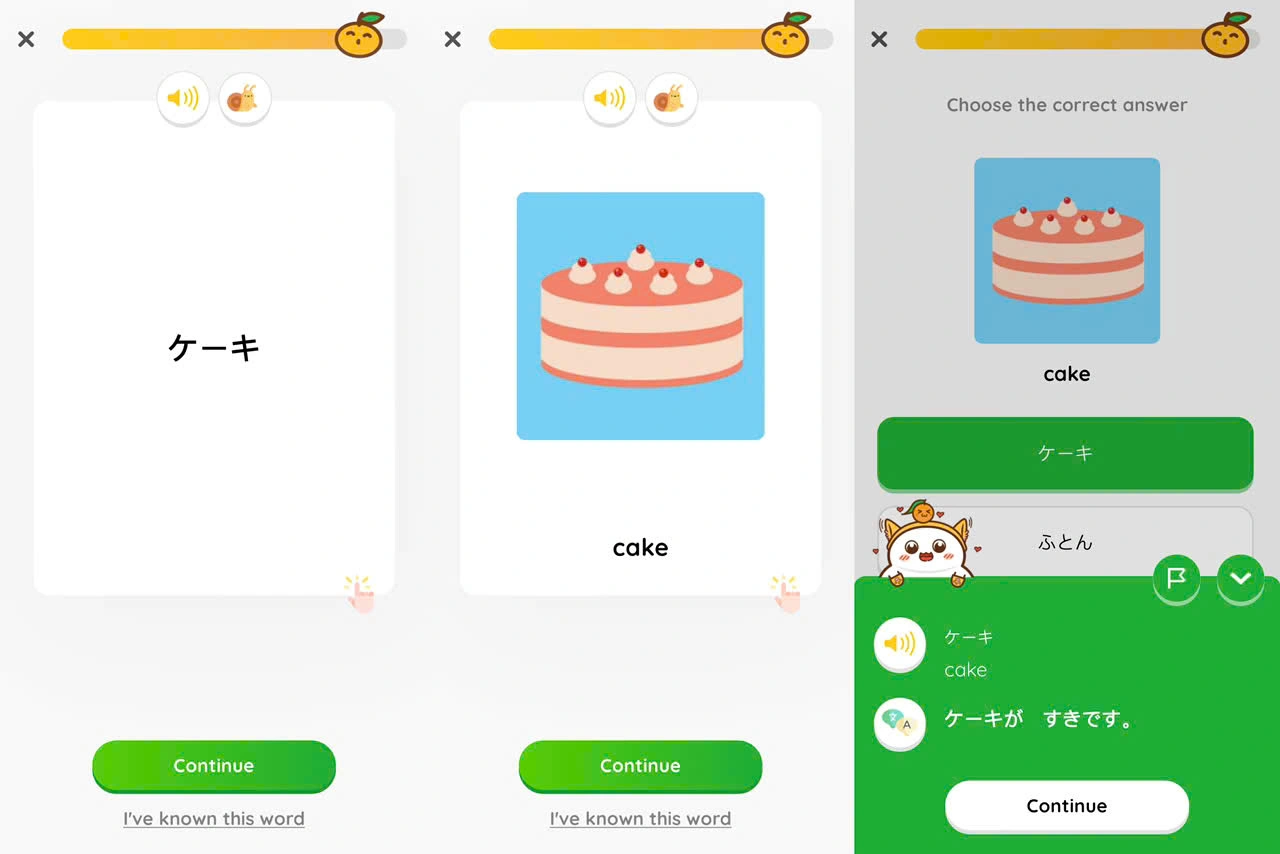
Using MochiKanji’s flashcard feature is an effective way to learn vocabulary related to food and drink. You can practice the word “cake,” which is ケーキ (keeki) in Japanese. The flashcards help reinforce your memory by repeatedly exposing you to these terms in different contexts, making it easier to recall them when you encounter them in real life.
Family and people
| Japanese | Romaji | Meaning |
|---|---|---|
| 家族 | kazoku | Family |
| 父 | chichi | Father |
| 母 | haha | Mother |
| 兄 | ani | Older Brother |
| 姉 | ane | Older Sister |
| 弟 | otouto | Younger Brother |
| 妹 | imouto | Younger Sister |
| 祖父 | sofu | Grandfather |
| 祖母 | sobo | Grandmother |
| 夫 | otto | Husband |
| 妻 | tsuma | Wife |
| 息子 | musuko | Son |
| 娘 | musume | Daughter |
| 両親 | ryoushin | Parents |
| 兄弟 | kyoudai | Siblings |
| 親戚 | shinseki | Relative |
| 友達 | tomodachi | Friend |
| 同僚 | douryou | Colleague |
| 先生 | sensei | Teacher |
| 学生 | gakusei | Student |
Conclusion
To effectively build your Japanese vocabulary from beginner to advanced levels, using a comprehensive tool can make a significant difference.
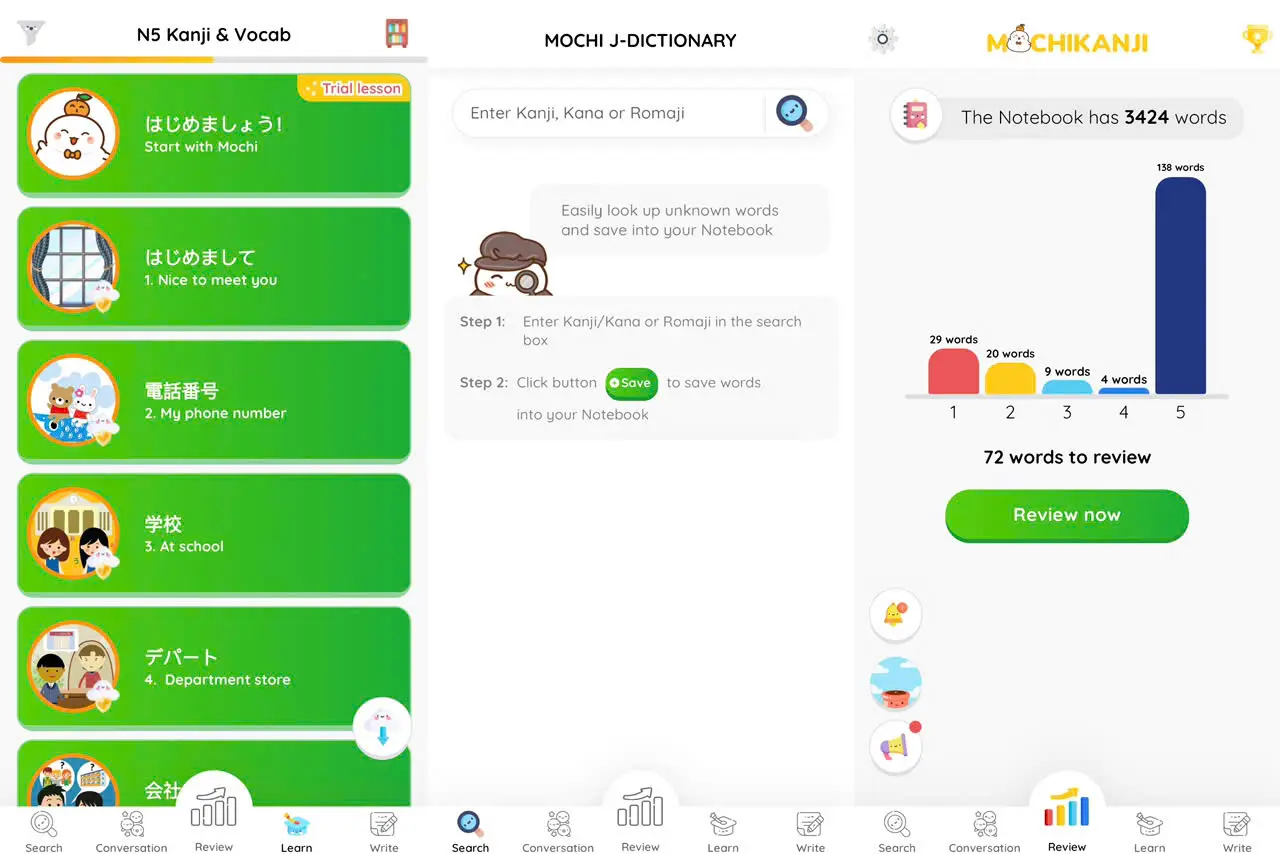
MochiKanji offers vocabulary organized by levels from N5 to N2 and other courses that suit every individual needs, categorized by topics and sample lessons, complete with images,audio and example sentences. With Japanese words or phrases not included in MochiKanji’s course, you can look them up in the J-Dictionary and save them in the digital notebook, then review them at Golden Time that’s based on the spaced repetition. Give it a try!
As you explore these essential basic words in Japanese, remember that practice is key to effective communication. Incorporate these terms into your daily conversations, and you’ll quickly gain confidence in your language skills. With a solid grasp of basic vocabulary, you’ll be well-equipped to engage with others and enjoy the beauty of the Japanese language.

